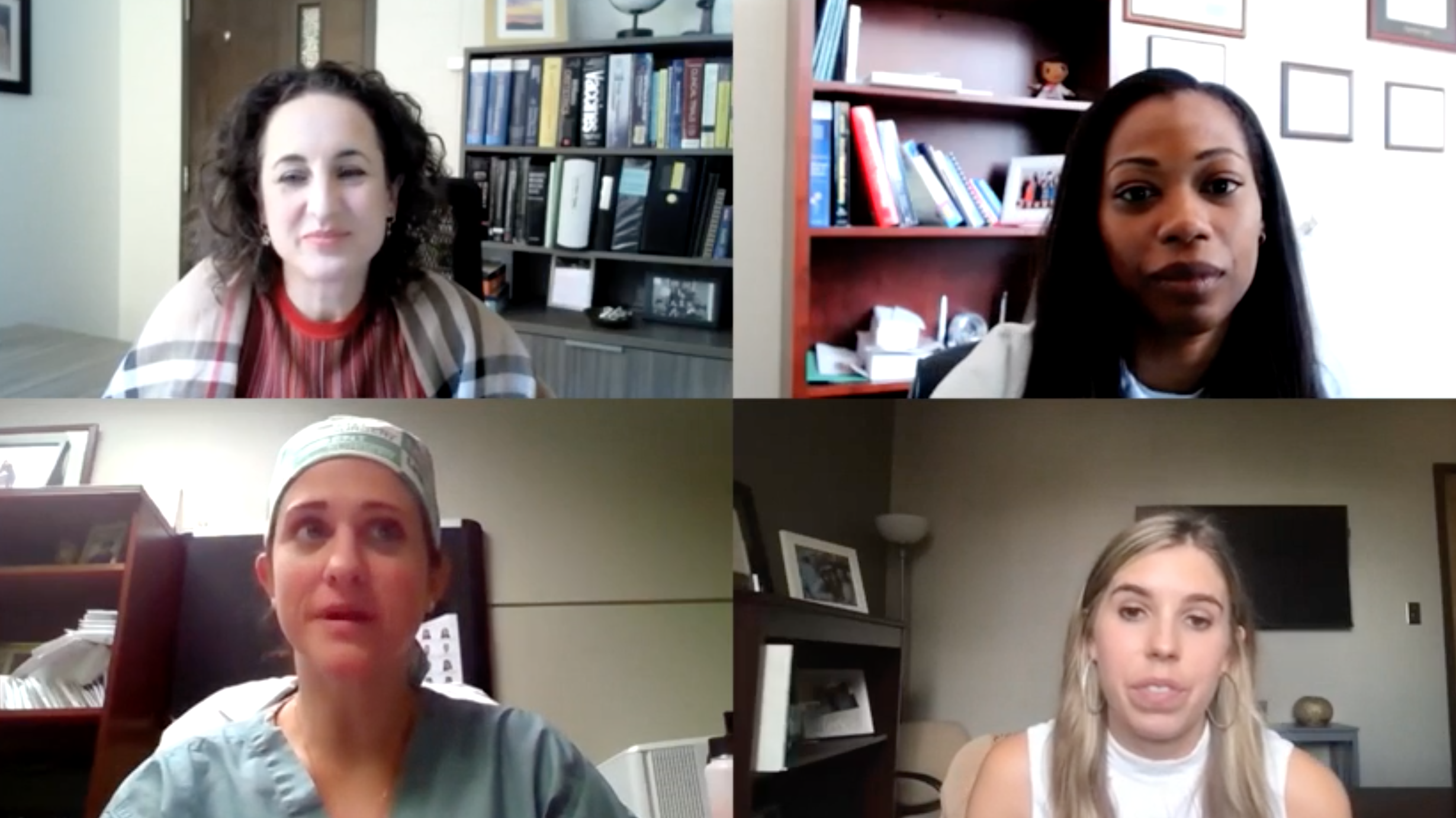A panel of women’s reproductive health specialists spoke at a public question-and-answer session on Wednesday hosted by the University of Alabama at Birmingham to give accurate information about fertility and pregnancy in regards to the COVID-19 vaccines.
“There are too many mothers who will never meet their babies because of COVID, and there are too many babies who will never meet their mom,” said Jessica Grayson, an assistant professor in the UAB Department of Otolaryngology who was vaccinated while pregnant in December and delivered her healthy baby in April.
As of August 20, 39 COVID-positive pregnant women had required hospitalization at UAB Hospital just in August. Ten were in the ICU, seven of them on ventilators.
Grayson and the two other doctors spoke virtually to reporters two weeks ago. Jodie Dionne, associate director of UAB’s Global Health in the Center for Women’s Reproductive Health and an associate professor in the Division of Infectious Diseases, said she wanted to put facts out there about how the vaccine works because there is so much misinformation on social media.
The mRNA technology only introduces a portion of the virus’ spike protein’s code into the body, not a whole live virus or even an inactivated or killed virus, she said. Once injected, the vaccine stays mostly in the muscle tissue of the arm near where the shot was given.
“It doesn’t circulate widely or embed itself anywhere deep inside your tissue. That’s not the way it works. It does not enter the nucleus, it does nothing with your own cellular genome, your own cellular DNA,” Dionne said.
The antibodies that a vaccinated pregnant woman’s body produces have been found to make it into the fetus, as well as through breastmilk after birth, which is exciting news, she said. Women who had enough time after the first and second dose while pregnant passed a higher amount of antibodies to their babies, recent studies have shown.
Because there is no vaccine yet for children under 12, the only way for an infant to have the protection of these antibodies is through their mothers’ bodies or breastmilk.
Audra Williams, an assistant professor in UAB’s Department of Obstetrics and Gynecology, has been urging all of her patients to get vaccinated as soon as possible. She wants them to think about being vaccinated against COVID-19 as routine care during pregnancy.
“I have been very explicit these past months about what we’ve been seeing here and about just how sick some of our pregnant women have been; the women that have been intubated and, unfortunately, the women that have lost their lives to this,” she said.



















































